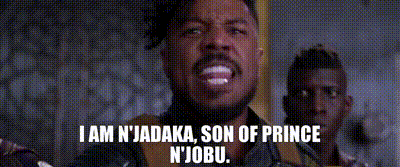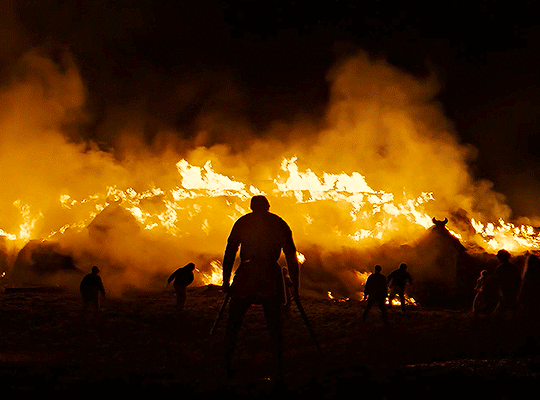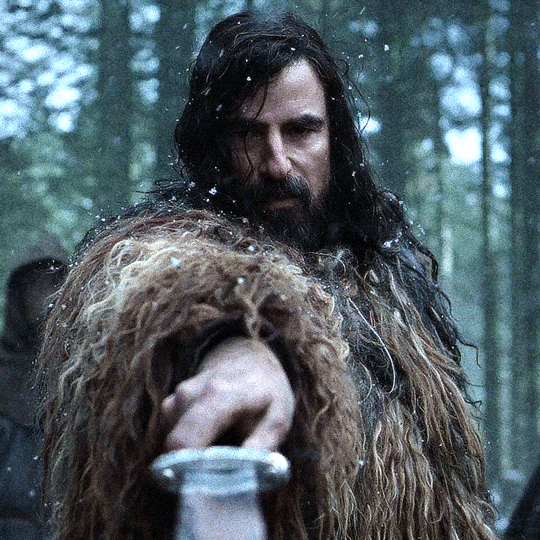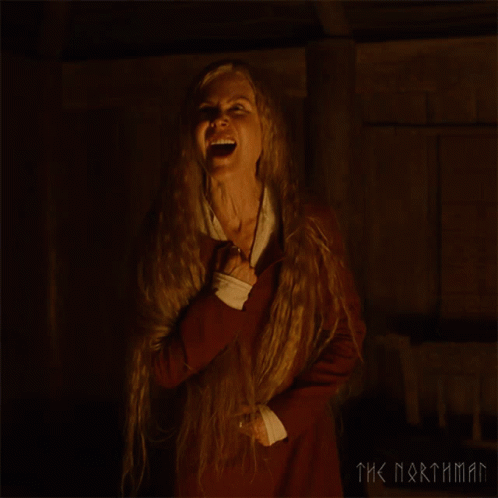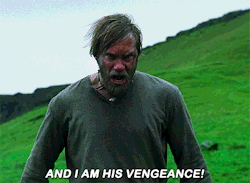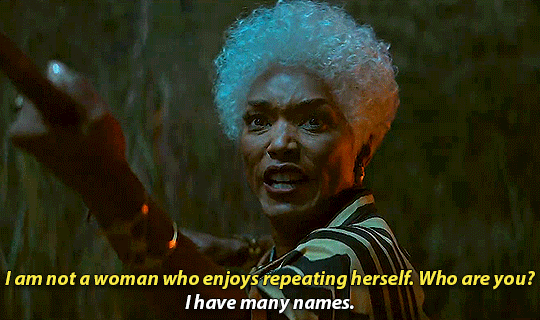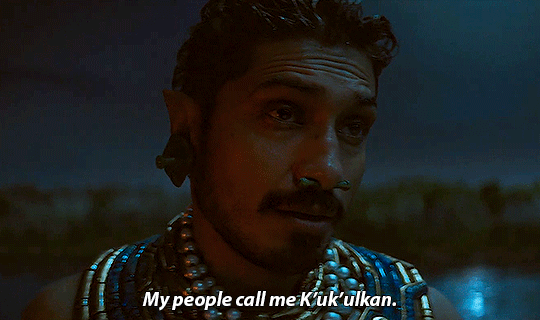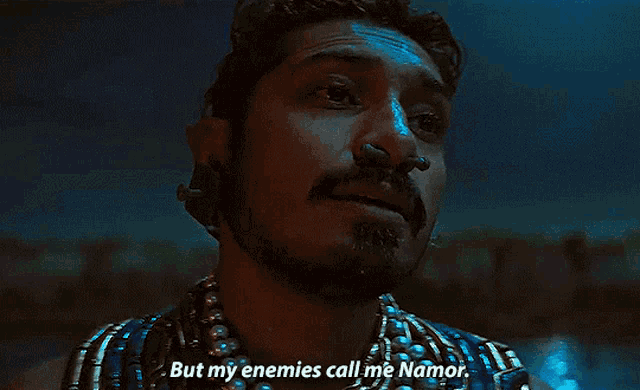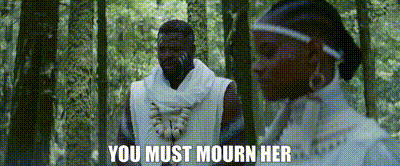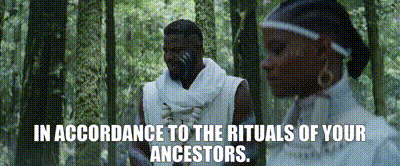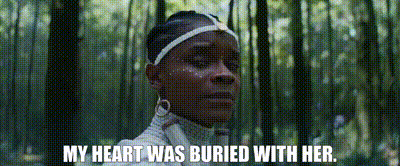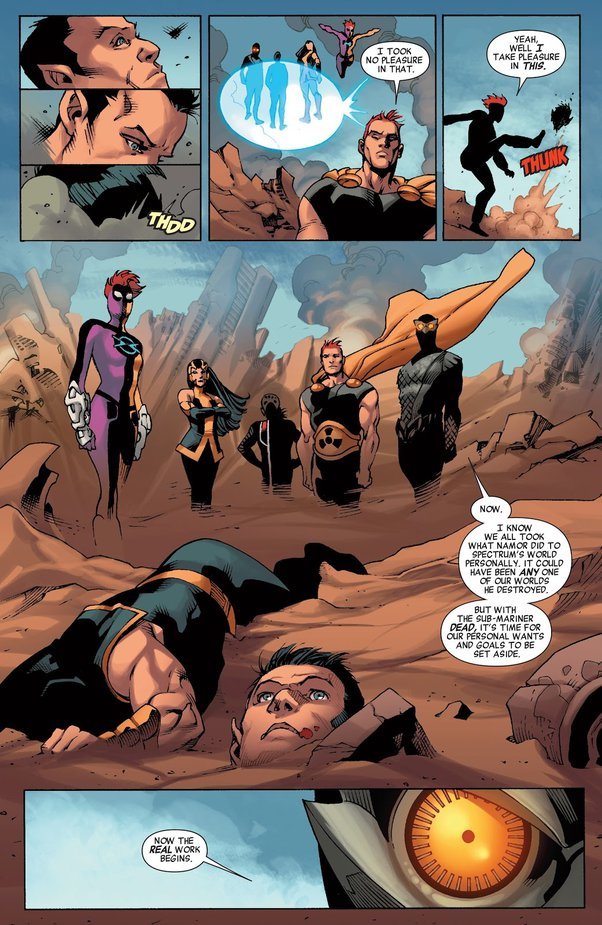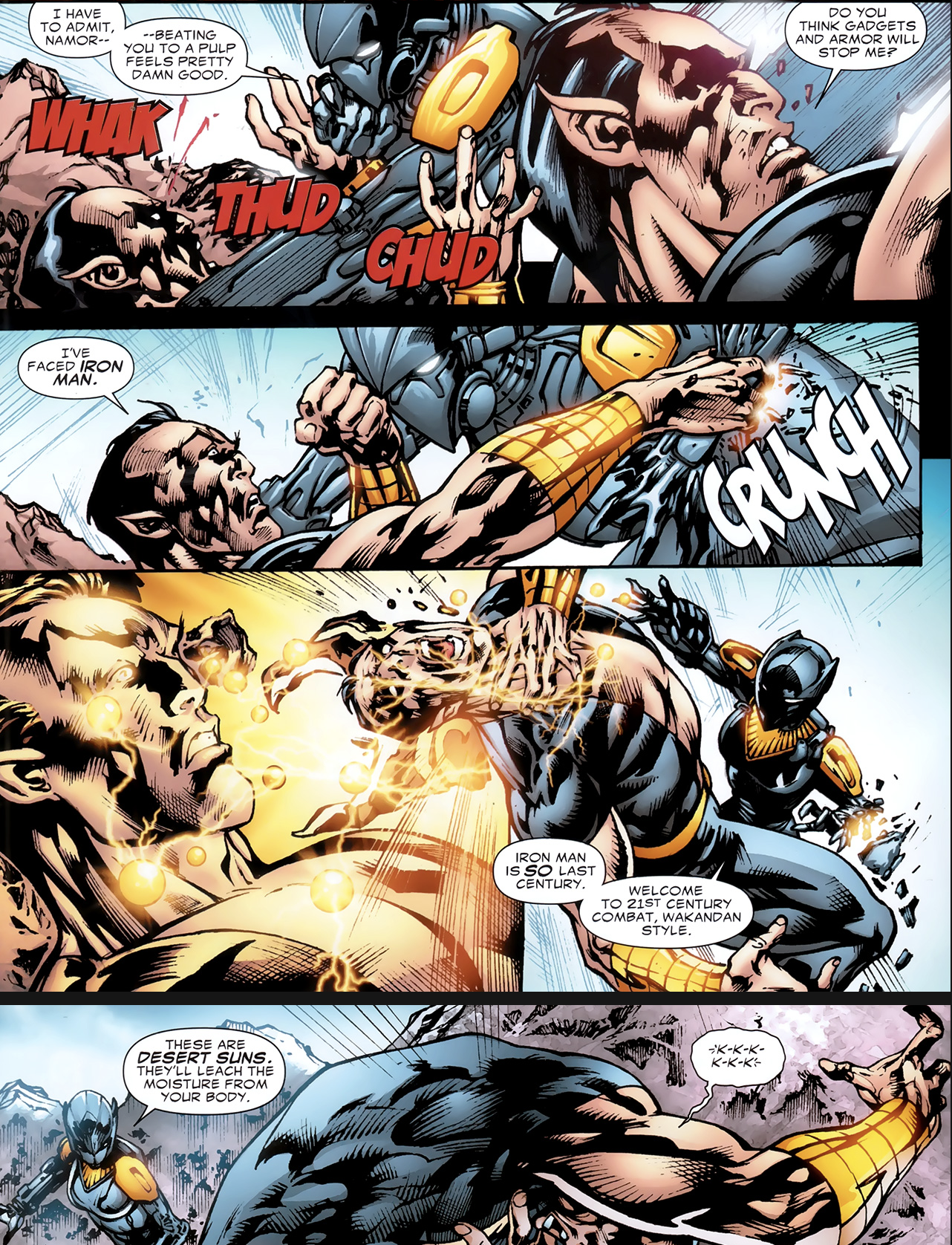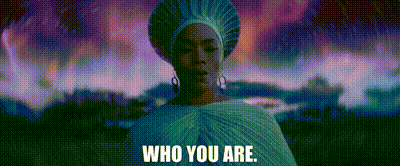
‘how,’ is never as important as ‘why,’ namor and n’jadaka
he who has a why to live for, can bear almost any how, friedrich nietzsche
toussaint is my haitian name, prince t’challa
a man who has not prepared his children for his own death has failed as a father, king t’chaka
ungubani--ᚹᚺᛟ ᚨᚱᛖ ᚤᛟᚢ--máaxech
tw// mention of sa
this is film analysis, not review, so the writing assumes the reader has watched the films.
by: ares ellis
word count: est. 5000
“it was prophesied that i must choose... between kindness for my kin and hate for my enemies,” amleth
it answers how you became who you are in that moment-- so both/either being physically begotten by your parent(s) and/or spiritually nourished by those who raised you; or it also signals that neither parents nor a tribe raised you! killmonger is not his actual surname (and he explicitly says his name is neither erik stevens nor killmonger), but n’jadaka, son of prince n’jobu is both a fore- and surname, signalling both his slain wakandan father who could not raise him and his lack of wakandan tribal ties (who you are), which provoked his pursuit of vengeance (how you became). thus, your name is not just the who, but the blending of the how and who, the blending of the active and passive (when the how you [action] becomes the essence of your being). as important as this may be, it is never as important as why: why are you? what do you live for? what would you die for?
these are the questions anyone, but especially a hero (and villain!), must answer. when a story is able to beautifully- and on some level relatably, but at the very least humanly- explain those answers, you have an amazing epic. here, we have three: the northman, black panther, and wakanda forever. the films analyed here depict cultures in which the answers to all of these questions explicitly center family and kinship… this is actually the case for many cultures, but has been devalued under colonialism and western/american hegemony. i wish to analyze how these films distinctively but correlatedly answer these questions-- within the dramatized and fictionalized norse, wakandan, and talokan cultures by amleth and gudrún, t’challa and n’jadaka, and shuri and namor-- to advance their plotted politics of familial vengeance.
‘how’ and ‘who’ are anagrams. when we ask someone, how are you (doing), we are normally asking about their current state or condition; yet when we ask, how do you [action], we mean in what way or by what means. the former is considered passive, the latter active. at the center of an epic tale, though, we find a hero searching for their identity in the face of insurmountable odds, being asked by themselves and others, who are you? in response, our surnames are typically descendant of one of our parents’, who usually choose our forenames too, if not another member of the tribe/family. even without a surname, “[child] of [parent/guardian]” or “[forename] of [tribe]” answers the question…
¿ How Are You (...Living/Dying/Being) ?
〰️
¿ How Are You (...Living/Dying/Being) ? 〰️
amleth and gudrún
by living in (their) godliness, the old norse vikings were a very amorally violent peoples, relying on a religion sustained by war to cyclically support their pirating and pillaging. “cyclically” because to live in honor meant to die in battle, and to die with honor one must live in battle; furthermore, the reward for a noble (a warrior’s) death was an afterlife in valhöll where they await to fight along the æsir in the final battle against the vanir during ragnarok. this “reward” was not conditional on the morality of their lives (morality here in the old norse episteme, governed by war), but only the conditions of their deaths: a lifelong warrior who dies of a battle wound at home goes to hel while the unfaithful housewife who dies defending her homestead can reach valhöll or fólkvangr. a god of many things, odinn is most commonly associated with war, death, and wisdom. amleth seemingly knows only the first two; he becomes a berserker to introduce war and death to not only the conquered villagers but eventually his uncle (his father’s killer) and then himself, for to live in honor was to die in battle, and what more honorable a battle than slaying his father’s killer and mother’s abductor. except his mother was not abducted, but rather the orchestrator behind his father’s coup. there is hardly a character wiser than her in this film, and at the same time she holds the same passion for war and death exemplified in amleth, aurvandill, and fjölnir. she is the true wolf in sheep’s clothing.
the origin narratives and cultural foundations for each of these societies lie in war, including the yucatec mayan civilization predating the talokan, so each character’s engagement with this traditional warfare (or passivity) defines and gives depth to their respective arcs. from both an agnostic and filmic perspective, just as we say, god is in all of us, their gods are literally in all of them. odinn is in gudrún, just as bastet is in shuri, just as k’uk’kulkan is in namor; our understandings of religions and gods (both others’ and our own; in real life and in stories) are constantly being reshaped and reinforced by those who are allegedly living in godliness.
fjöllnir
aurvandill
KING AURVANDIL: At every passage, one should turn his eye round, one should spy round...
HEIMER THE FOOL: For a foe might be crouched within upon the floor...
KING AURVANDIL: Fortunate is the man who has the wisdom of life...
HEIMER THE FOOL: Wise in measure should each man be, yet wise enough to be the fool...
AMLETH: Wise enough to be the fool…
…
KING AURVANDIL: Strike, brother, strike. But know that bearing a stolen ring makes no half-breed a king. Soaked in my blood, it will soon be sliding off your arm like a serpent. Your kingdom will not last. Let this misdeed haunt all your living nights till a flaming vengeance gorges on your death. Strike. Strike! To Valhöll!
OLGA: Your sheep’s clothing doesn’t disguise you, North-man.
AMLETH: What say you, spell-speaker?
OLGA: You wish to be a slave, hide your cunning. Show the shepherd you are a sheep.
AMLETH: I will show the shepherd his death.
gudrún reveals to amleth during his rescue mission that she was a slave whom aurvandill raped into a forced motherhood and marriage, but fjölnir offered an escape with love. yet he was still planning to rape olga (or kill her for refusal) because she appeared a younger gudrún, repeating the cycle gudrún claimed to hate aurvandill for sustaining. she was defending the homestead of the same breed of man as aurvandill, another “lust-stained slaver!” gudrún clearly was not fighting against the institutional violence inflicted on female thralls or other norse women, but just the particular violence wrought upon herself. while it is unsurprising that she orchestrated the plan for aurvandill’s coup, the harder pill to swallow is that she had ordered the same death for her son. this decision cannot be read from a healthy-modern lens, a lens of love, but rather a healthy-norse lens, a lens of war: in war, she cannot leave that child behind because he will try to burn the world that left him just like n’jadaka. the night before his murder, aurvandill told his son that the gates of valhöll would be forever closed to him should he not avenge his father’s death; to forever live in shame included the afterlife, and the gates were open only to those with honor. both gudrún and amleth earned honor through death in battle and safeguarding their familial blood, but still had to undergo self-destruction their entire lives. amleth wasn’t searching for the secrets of women but found his mother’s when trying to save her, and so she wrought his ego death- destroying his entire past and sense of identity- the same way she wrought his father’s physical death. so when gudrún says, i am your death, to amleth (the human vessel of the old norse tradition/life within this film), she is literal-- at once odinn and freyja, freki and fenrir, both the disruptor and pillar of norse tradition and its machismo, as death is the law of the norse.
wolves hold a complicated status in norse mythology: too chaotic and voracious to be considered anything more than evil, but also very wise and fiercely protective of their pack, all of which are traits both admired and admonished in this culture. their liminal status is delineated through perspective: odinn has his own two pet wolves, geri and freki (both meaning greedy and ravenous), yet imprisoned loki’s wolf-son, fenrir, out of fear for his power; he would later eat odinn during ragnarok as “fated” by the norns (but i think that’s just what happens when you imprison a giant wolf for eternity). odinn’s own wolves- which should be considered fylgjur, or spirit animal extensions of himself- represented the epitomal and cosmogonically-primal manifestations of animal voracity and greed, but he valorized them because they were fiercely loyal to him. therefore, it makes sense that gudrún mirrors not just odinn- like the wolves and berserkers- but also the killer kung fu wolf b-tch (luna; watch boondocks!) who is driven to her state of madness by misogyny while still self-destructively loyal to her oppressors (because this fierce loyalty is encouraged by misogyny). yet their responses to this institutional violence still leads to their demises because these are cyclical institutions encouraging self-destruction in the name of the divine and supposed happiness; in other words, a fatal dependence on men (the Man above all being odinn). luckily for gudrún- unlike luna- her death was still “honorable” since it was in battle, even thanking amleth for a swift death, but because this is an epic unfolded from his perspective, gudrún is still a two-faced wolf representing both the “good” and “evil,” the freki and fenrir.
K: Tell me, how did Ódinn lose his eye?
H: To learn the secret magic of women.
K: Never seek the secrets of women– but heed them always.
H: It is women who know the mysteries of men. The Norns that spin and weave at their well of Fate, Freyja the shining goddess, The Choosers of the Slain...
i am your death!
K: Live in honor.
A: Live in honor...
K: Safeguard your familial blood.
A: Safeguard your familial blood.
black dreams arise!
H: Know you what that means, Amleth son of Aurvandil?
K: Should I fall by an enemy sword, you must avenge me or forever live in shame.
A: I will, father, I will! My blade will not rest till it's drunk the blood from his open neck!
¿ How Are You (...Living/Dying/Being) ?
〰️
¿ How Are You (...Living/Dying/Being) ? 〰️
t’challa and n’jadaka
the wakandans and talokanil are more calculated when it comes to warfare and honor, sometimes frustratingly so. while many people are still obsessed with vengeance, this is now commonly understood as an unhealthy mindset- both psychologically and spiritually- but vengeance for slain parents is at the center of all three narratives, so while the preceding section analyzes amleth in contradistinction to gudrún because that is who he sought vengeance both for and against, here is n’jadaka against t’challa and later shuri against namor. unfortunately, coogler’s films are disney films; in this disney-wakandan worldbuilding, westerners have a quenchless bloodlust and unsubstantiated thirst for violence (excepting their pet colonizer ross, but still including the colonized!) juxtaposed against this fictional utopian african nation. yet the “jokes” where wakandans call white people “colonizers” fall flat to me, becuase where exactly were y’all? how can you call someone “colonizer” as an insult when you sat back and let them do it for centuries, not even assisting those right on your border let alone turtle island? this diet-decolonial metanarrative conflicts with their traditional doctrine of passivity for supposed safety no matter how they try to spin it. this is where n’jadaka and namor are coming from, and that’s what makes their villainy complicated: their land, cultures, peoples (parents), etc. were pillaged and raped just as gudrún was, so of course they want to burn the world. also like gudrún, their downfalls lie in selectively assimilating the hegemonic culture they supposedly wanted to burn. however, while her self-destruction was actually historically accurate and moreso necessary given her status and conditions, n’jadaka’s and namor’s feel like disney products.
neither t’challa nor n’jadaka showed commitment to true Black liberation, which is something many Black radical viewers pointed out, but we must look at how they became who they were through their cultures to truly understand why. t’challa and his peoples were anchored by bast, the feline goddess of war and protection (for the home, from enemies and diseases), pleasure, and fertility. interestingly, her depiction had transformed from a lioness to a domestic cat- sekhmet, her sister, remained a lioness- while at this same time, egyptians began domesticating cats which were cherished for their balance of ferocity and voracity with intensely nurturing yet protective parental capabilities. so while bast reflected this balance, sekhmet remained wild and especially wrathful, equally respected and feared by practitioners for most of the same attributes as her sister. equally interestingly, captain america: civil war is the only film in which any wakandan mentions sekhmet (or any god besides bast), and it is t’challa explaining the wakandan afterlife to natasha. this conversation takes places merely minutes after he unearthed his father’s dead body, and he almost seems to rebuke the idea of the wakandan afterlife, but it is only his state of rage in pursuit of vengeance. it’s completely understandable and even mirrors shuri’s response when queen ramonda encourages her to grieve t’challa- and further, n, but now as king and black panther (not simply son of t’chaka, just as she is no longer simply daughter of ramonda), it is more imperative than ever that he (and later shuri) makes decisions to live in godliness (bastliness) as bashenga did.
T’CHALLA: In my culture, death is not the end. It's more of a stepping-off point. You reach out with both hands, and Bast and Sekhmet, they lead you into the green veldt, where you can run forever.
BLACK WIDOW: That sounds very peaceful.
T: My father thought so. I am not my father.
B: T'challa, Task Force will decide who brings in Barnes.
T: Don't bother, Ms Romanoff. I'll kill him myself.
cats, especially bast herself, are extremely wary of snakes (like k’uk’kulkan), so it makes sense that t’challa distances himself from the avengers unless world-ending peril is afoot, but finding zemo then imprisoning him instead of allowing him death is such a terrible ending. shuri offering namor mercy was truly for her people, as m’baku explained that killing a god would ensure eternal war, but zemo was a nobody with his family murdered by the avengers. he clearly got what he wanted by disunifying the avengers, so what is the point in letting him live just to imprison him when he was ready to kill himself anyway, if not vengeance by refusing him closure? the blood would literally not have been on t’challa hands, and we see how this plays out with n’jadaka.
n’jadaka refused subservience or imprisonment, so t’challa was forced to kill him in order to save wakanda, but in doing so he died forever seeing t’challa and isolationist (traditional) wakandans as his greatest enemies. we still see some of this anger when shuri takes the herb; just like n’jobu, he isn’t at peace with his death. there’s still fire in his eyes when he and shuri burn down the throne room, like the pain we see in n’jobu’s eyes when his son visits him. t’chaka and ramonda, however, appear to be at peace despite being murdered like their kin. so if it is not the condition of their death that dictates a) where they end up and b) their state of mind in the afterlife, then what could it be? returning to an agnostic and filmic perspective, they are still both considered part of the “lost tribe,” and we are viewing them from the wakandan lens-- the lens of their murderers and dream-killers-- so of course they are unhappy in this afterlife*.
*is n’jadaka in his personal hell? is n’jobu? black widow says the wakandan afterlife sounds peaceful, but those two are the only ones who don’t appear at peace in the ancestral plane. he said, death was better than bondage, but is now eternally bound to the afterlife of a culture that rejected him, and he can’t do anything to achieve the goals they killed him for aspiring to. n’jobu can’t do anything to save his son from this fate, as he couldn’t save his wife.
the mind is its own place, and in it self
can make a Heav’n of Hell, a Hell of Heav’n
- Paradise Lost, I (254-255)
thus, if we compare n’jadaka to amleth- both of whom are the most direct analogues to shakespearean-hamlet in these films- the primary contrast in their deaths isn’t even failure in life, but failure in death. in the traditional hamlet narrative, king hamlet doesn’t just give his son a purpose for life, but peace with death, which hamlet accepts in the end despite being murdered; ghosts are the remnants of unfinished business, and king hamlet appears to his son as a ghost to command his vengeance. while these films don’t use ghosts, the haunting effects of unfinished business to fulfill a dead parent’s wishes is still ghostly. amleth fulfilled his duty to a T-- his sword literally drinking the blood from fjölnir’s neck as prophesized-- but n’jobu never explicitly gave n’jadaka any such vengeful imperative (mind you, n’jadaka purposely showed up after t’chaka died but somehow blames t’challa). like his son, n’jobu was influenced by the black panthers while possessing an antithetical dream of a global wakandan empire, but there are two main problems with assuming n’jadaka’s modus operandi was aligned with what his father truly wanted for him.
first, ross explained that n’jadaka’s actions were clearly influenced by his JSOC training, while n’jobu’s training would have been wakandan so he would not have internalized the same level of colonial--imperialist thinking that his son did; second, the only regret (shame) that n’jobu showed his son was for not taking him back to wakanda. while n’jobu was wrong for believing that true freedom necessitated a global wakandan empire, he understood that nothing about liberation could be learned from colonizers, including their views on death (or more specifically, their devaluation of life), which n’jadaka internalized from two vantage points: the hood and the military. n’jadaka’s quote, everybody dies… it’s just life around here, is therefore ironically two-fold, becuause from his perspective- a Black kid from oakland- he’s speaking to the devaluation of Black life in the west; the ruling imperative of violence that colonizers have taught Third-and-Fourth-World kids like him all over the world. yet from a wakandan perspective, it could also refer to the full acceptance of the circle of life, as many precolonial and nonwestern cultures (especially those of the afrodiaspora, reflected in t’challa’s funeral) have a much healthier relationship with death than many of us do under the hegemonic superculture advanced by the judeo-christian west.
it is hard to make peace with the biggest mystery of life, death, when you don’t fully understand how it’s addressed within your own native culture and their practitioners reject you; or when the culture/religion imposed on you is also the tool used to suppress you; or when your aspirations for your people’s advancement are always rejected and doomed to fail, even by those claiming to be your people. this is what makes n’jadaka’s quote so harrowing, and why it is the strongest testament to his unbeknownst assimilation into western culture: he has subconciously been convinced that Black lives don’t matter despite supposedly fighting and dying for the opposite. so his failure in fulfilling his father’s ultimate dream for him took place not while he was living- he made it to wakanda using the key that his father left him as a message, his ghost- but when he died, for his return home only wrought more fatality rather than allowing him to fully grieve all the loss he had already experienced and understand that the ends (supposed Black liberation) didn't justify the means (Black death--murder). so when n’jobu said, the sunsets are the most beautiful there, it could also be interpreted as a metaphor for death and rebirth as shown in their beautiful funeral rituals, communication with their dead loved ones, and overall views on death and the afterlife. but n’jadaka was far too stuck in his colonial ways to understand the potential for rebirth-- the potential to reinvent wakandan traditions instead of destroying them; the potential to reconsider how helpful his motives were if all that death hadn’t led him anywhere but his own death; the potential for t’challa not to be like his father, that t’chaka’s death actually triggered t’challa’s mental rebirth.
so it would have been more beneficial to focus on the hypocrisy of killing African peoples for the american war machine-- which was never fully explained why that was the only course of action available to kill t’challa, and it failed due to m’baku’s mercy and the grace of bast-- instead of pretending that using wakandan resources to arm colonized peoples so we could take our freedom was some farfetched, immoral plan (but again, this is a disney movie). that is actually what the black panthers stood for-- armed resistance-- but there is an apparent reason that the only veterans they allowed in their ranks had to prove their loyalty to the cause and not imperialist ideology; the sun will never set on [any] empire is diametrically opposed to the politic of the black liberaton army, but aligned with the language of a colonial military. wakandans- and by extension afrodiasporic cultures- understand and celebrate the beauty and necessity of death, but n’jadaka suppressed and rejected this, using death as a tool rather than a teacher-- something to be (ab)used and controlled for personal gain rather than understood and appreciated in order to truly appreciate life.
¿ Why Are You (...Trying To Burn The World) ?
〰️
¿ Why Are You (...Trying To Burn The World) ? 〰️
QUEEN RAMONDA: Which one did your mother give you?
(Namor smiles at her bluntness.)
NAMOR: She named me Ch’ah Toh Almehen...
there were many interactions i was glad to see amended between the script and the final cut, but this was not one of them. it seems disingenuous (kinda colonizery actually) to disallow the audience from hearing namor’s mayan birthname, but the emphasis on his mother being his name-giver is very important and further testament that it would serve better to understand these main characters’ places in their cultures matrilineally. amleth, like his mother, was not just a thrall but a wolf (warrior) in sheep’s (slave’s) clothing; they both twofoldedly used the creation--protection of a new, real (freely chosen) family to both escape their subjugated earthly status and reach the gates of valhöll/folkvangr. n’jadaka- like his mother and because she, an american, birthed him, and as his father assumed- was rejected and considered lost both literally by t’chaka abandoning him and conceptually by wakanda refusing to seriously combat colonialism. his uncle not only took his father from him, but prevented n’jobu from breaking his mother out of prison; therefore, he eventually internalized his hatred for wakanda as the greater enemy and purveyor of death in his life than the imperial core he would later serve, making it easier to internalize the imperialist imperative to destroy his native culture to achieve his goals, especially because he had no living connection to it. not only did wakanda (t’chaka) lose him, but he became lost in his ways as a whitewashed caricature of a Black radical. all three died in, while fighting against, the metaphorical prison of antiBlackness, whereas n’jadaka’s mother literally died in prison. t’challa, like his mother, epitomized bast. as king and queen, they both went out into the battlefield (literal and political) to defend wakanda and her resources from colonizers and outsiders, but both also came to realize the balance in accepting (displaced) Africans as kin. not only did ramonda give her life to save riri, but also t’challa encouraged nakia to raise their son in haiti and forego the funeral after preparing them for his illness and death, in effect making his son an outsider and only giving those two his full life.
namor and shuri were directly acting on the deaths of their mothers; furthermore, there is no exploration of namor’s blood ties beyond his mother (maybe cousin namora), and shuri has lost all her immediate family until she is introduced to toussaint. before burying his mother in the soil of her homeland, namor and the talokanil stumbled upon a hacienda and rightfully burnt it and its owners to the ground; but both filmically for us and psychologically for namor, the two events are forever intertwined. he had to burn down the hacienda in order to physically bury his mother, and it seems he must burn the surface world before he can move on spiritually. a more general issue- in the first and second film- is the conflation of the imperial core with the whole world. i indirectly acknowledged this issue with n’jadaka by emphasizing that his assimilation of colonial--imperialist cognition allowed him to misdirect his anger at the colonial powers towards his own African siblings, but with namor he has been his own king and god since the 16th century, involved in no surface world politics. yet, while his insistence on striking wakanda first if they do not support him could be interpreted as either his war tactic to defeat the biggest threat first or just disdain for their passivity towards colonization, his consistent generalization of the surface world as colonial profiteers implies that he actually wants to wage war on the entire world. at least n’jadaka explicitly said he was arming Black and other colonized peoples to take their freedom, but namor generalizes all surface nations as enemies, antithetical to his goals.
to make things even more complex, the politics of liberation here are still intertwined with the atlantean lore from marvel comics. the eternal war between the two nations in the comics is clearly being translated into the film, and disney namor is just as cocky and hardheaded as namor the sub-mariner, which arguably leads to the latter’s decapitation by the squadron supreme (of course he gets resurrected by someone wanting to rule the world). both namors share the belief that killing any and every outsider necessary to achieve his goals (ostensibly for the good of his nation) is always the best course of action. in the film, he threatens to wash wakanda off the face of the earth if they do not join him after killing queen ramonda; in the comics, he literally does so because they’re providing shelter to the avengers during his battle with the x-men, killing countless wakandan denizens. it is this attitude that precisely leads to one of his many deaths, with the squadron supreme-- a group of heroes from several universes tracking him down to kill him and destroy atlantis because he destroyed their earths during the incursions (see multiverse of madness!) which were missions that t’challa was apart of in the comics but exercised much more caution. the mcu has yet to introduce the ability for unlimited resurrections the way the comics do (and they probably never will), so namor’s miscalculations may prove much more fatal. his assurance that wakanda will need his assistance to defend itself from colonial powers- who he overestimates as the entire surface world- severely underestimates wakandan might. because of the nature of the mcu, there will definitely soon be a greater unforeseen threat to wakandan security that suddenly renders their technological advancements null, but realistically that threat could never be just colonizers. he also underestimates shuri in the wake of her mercy…
(amended scene) after nakia rescues shuri and riri
NAMORA: They came while you spoke to the Queen? We should not have trusted her. The Princess has seen our home. What is stopping them from coming for Talokan?
NAMOR: We will. I promised my mother that I would never allow a single Talocanil to be killed again.
(Namor turns to Namora, seeing blood red.)
NAMOR: Our people invoke my name when they pray for protection. His death will not go unpunished.
t’challa and ramonda live on through shuri in her climactic battle with namor, despite her initial insistence that people are simply gone once they pass. this makes her vision of ramonda all the more special, because until then she had only seen n’jadaka with the herb, but clearly the herb is just as psychological as it is spiritual. n’jadaka purposely asks, why did you take herb? because that why constructs her experience; that why is both psychological and spiritual. as she holds the blade to namor’s throat, the spirit of bast takes over, but i’m not sure if it was purposely written the way i interpret. not only does she reflect the famous painting of bast beheading apep (a snake god threatening to consume the world like k’uk’kulkan/namor), but also the spirit of protecting the home overwhelms her. the montage in their minds during this scene rewinds time, not just to restore their homes but to restore their mothers (the hearth of matrilineal culture). the script says shuri “trembles with anger and fatigue,” but what if she unknowingly recreated the ritual taught by her mother? she’s not in the bush-- surrounded by neither grass nor water-- and she didn't burn any funeral garments-- besides namor, who does represent the epitome of vengeance that she’s worn since ramonda’s death-- but for a ritual of grieving to truly work, she simply needs an open spirit and to be quiet as she refused to be when ramonda tried to teach her earlier.
in that moment-- blade at namor’s throat-- she found her mother in the quiet breeze, despite all the noise of violence overwhelming her senses. it wasn’t fatigue or anger that pushed her (2:18:35), but the hand of her mother (and t’challa; the paw of bast). the beginning of black panther with t’challa battling m’baku is reflected in the climax of wakanda forever-- not a question of who, but a command. her goal is to protect her home, which she can achieve without destroying the namor’s or taking his life; not only that, but she realizes that vengeance is the spirit that possessed namor to destroy her home as well (a spirit the bp franchise more so associates with Western mores). they cannot protect those who are already gone (their mothers especially), but only those left behind, so when she says, we cannot let vengeance consume our people, she means literally consume and kill them in the spirit of sekhmet and apep.
Shuri And The Burning Bush
while shuri can prevent another talokan attack on wakanda by showing both strength and mercy, the same won’t work against colonialism and antiBlackness. the colonized and precolonial peoples may understand and respect yield (emphasis on may), but the same respect isn’t afforded under colonialisn. even if she doesn’t want to preemptively strike the imperial core to prevent vibrainum mining or an invasion, it wouldn’t be succumbing to vengeance to arm her global African and colonized siblings in order to combat the snakes that continue to poision and kill them everyday. it seems rather ironic (read: antiBlack) for her to show mercy to talokan in order to preserve their home from destruction-- because she visited and saw how beautiful it was-- but her visit to oakland simply showed her basically calling the place dirty and then proceeding to offer no help to the Black struggle besides… teaching some science classes? vague ass “social outreach” and “information exchange” isn’t the same as sharing resources, funding communities, teaching colonial resistance, etc. that’s like when jay z hired somebody to go teach crypto classes in stuyvesant like people in poverty are worried about bitcoin. he brags about being a billionaire… where’s the financial assistance? where’s the free housing? t’challa bought an apartment building, and instead of addressing oakland’s homeless crisis they taught science fair experiments to people who likely can’t afford MIT like n’jadaka somehow did for grad school (then still joined the military afterwards!).
wakanda could cultivate stronger panafricanism if they would simply expand t’challa’s policy-- geographical and political expansion, by teaching and supporting colonial resistance instead of just “education and outreach,” especially starting with their own continent instead of just the imperial core-- before ever “needing” the snaky talokanil as “allies.” in the comics, t’challa knew that namor couldn’t be trusted, and that’s why after their first mission together he developed a file full of his and the atlanteans’ weaknesses. one would hope that shuri’s experience and visit to their city will eventually encourage her to do the same, especially since she herself destroyed atlantis in the comics after namor destroyed wakanda. in the spirit that amleth destroyed the paradigm of choosing between kindness for his kin and hatred for his enemies in order to somewhat rewrite his fate while still behaving “morally,” living in his godliness, one would hope that toussaint- by growing up in haiti while also being wakandan royalty, so hopefully nakia and shuri as well- will understand and appreciate the godliness (bastliness) in recognizing and defending all Black folx as kin. but one probably has too high of hopes for a disney film.
AMLETH: It was prophesied that I must choose between kindness for my kin and hate for my enemies ...
OLGA: And see what hope we have before us...
He looks her deeply in the eyes with love.
AMLETH: I choose both.




